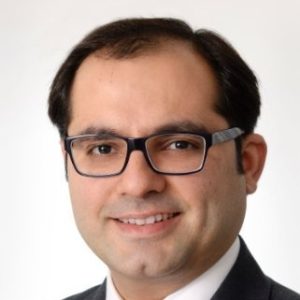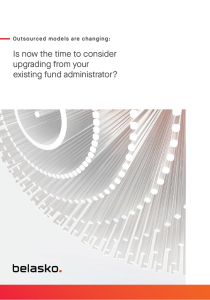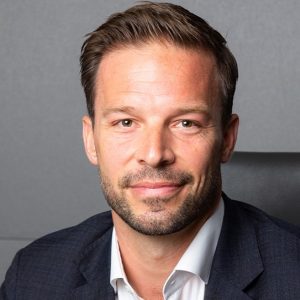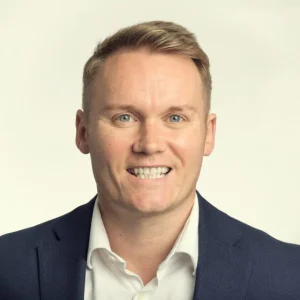Mariam Sunmonu, CDD Analyst based in our UK office, shares her blueprint for collective success when it comes to women supporting women in the workplace.
“A woman is a woman’s worst enemy, they say. “A woman is a woman’s greatest ally”, they also say. Before we dig deep into this mind-stimulating topic, I would like to ask my readers what would you prefer to be known as?
It’s exciting to know that we now live in an era where women are breaking barriers and redefining leadership across various spheres of life. Amidst this development, it is important to stress the advantages of women supporting other women in the workplace, most importantly to maintain and increase this achievement.
On the one hand, we have had situations where a women can support through mentoring, advocating for equal opportunities, amplifying each other’s voices, and fostering a culture of collaboration; examples are Lilly Ledbetter who advocated for equal pay, Tarana Burke who started the Me-Too movement, and many others that have not been publicised.
On the other hand, without intending to be stereotypical, you may agree with me that women can often compete against one another. Even with friendships, we find out that the most common reason for many disagreements amongst the womenfolk can be jealousy of another woman’s success or achievements.
The subconscious notion of competition tends to overshadow the power of collaboration. Yes, competition is good! And that’s one of the reasons why we have events and shows that encourage healthy competition. However, competition becomes a plague when it hinders true progress, especially in the women’s world. Hence, a need to foster the idea of women uplifting, empowering and advocating for one another.
Here’s a fresh perspective on how women can create a workplace culture where everyone thrives.
- Redefining competition by making collaborative accomplishment the goal
As mentioned at the beginning of this write-up, woman can be a woman’s greatest ally and vice versa. What aids allyship is collaboration, however, the thief of collaboration amongst women is unhealthy competition. I stumbled upon a thrilling and thought-provoking movie towards the end of last year titled – ’The Six Triple Eight’. This movie taught me that as humans, no matter how insignificant or exceptional we perceive our gifts, abilities and talents, one thing is for certain: in any environment we find ourselves and in whatever numbers, we are there to serve a collective purpose. Our gifts can only be utilised to their fullest if and when we work together. And the purpose of our existence in that environment should always be the driver of every decision and action we take, not our selfish ambition which leads us to unhealthy competition.
I also learned that when one woman achieves, it should pave the way for other women to grow and achieve, refining her mindset from competition to collaboration. Also, it’s okay to celebrate each other’s wins, and acknowledge that one woman’s success or achievement does not diminish or block one’s own.
- Dealing gracefully with one another’s strengths and weaknesses
Through my personal experiences, I’ve discovered that when a woman acknowledges another woman’s abilities, women improve in those areas. A woman, as an emotional human, can suffer when her weaknesses are critiqued by another woman; similarly, a woman will improve when she is supported by another woman in her weaknesses. This is because, in most circumstances, only a woman understands a woman’s struggle.
This aspect also reminds me of a scene from the Six Triple Eight movie. It’s reassuring to see how a woman can let another woman display her genuine light without first considering how the deed would negatively affect them.
- Challenging biases—even your own
Unconscious bias doesn’t just come from men; women too engage in biases that work against other women in the workplace. We should aim to recognise and challenge biases in hiring, promotions, and evaluations. Speak up if you see another woman being maligned, sabotaged, disregarded or not getting due credit for her ideas in respective teams and in general. By calling out these issues, you contribute to a fairer and more inclusive work environment.
Also, one of the simplest yet most effective ways to curtail workplace bias and support women in the workplace is to ensure that they are heard. If a woman’s idea is overlooked in a meeting, amplify it. If a colleague is hesitant to speak up, create space for her. Women backing each other in professional settings ensure that contributions are acknowledged and valued.
- Building a strong professional network that aids mentorship and sponsorship
Women need powerful networks just as much as men do. We can create, as well as join, women’s professional groups, mentorship circles, or industry associations where women can exchange opportunities, resources, and support. A well-connected woman can open doors not only for herself but for others. This can further be made a norm for generations to come rather than a work in progress.
Mentorship is valuable, but sponsorship goes a step further to making the human development process more effective. While mentors offer guidance and advice, sponsors actively advocate for a woman’s growth by recommending her for promotions, leadership roles, and high-impact projects.
Women in leadership positions can play a crucial role in ensuring that upcoming talent gets recognised and nurtured. This may seem risky as nobody wants to recommend or sponsor a person they don’t fully trust or do not consider having an impeccable potential for growth.
However, life in general is full of risks. For example, if your child isn’t doing well, do we stop investing in the child’s life because of their inadequacies? I would assume that, if the child shows readiness to learn and grow, most of us will do our best to provide the child with all the resources they need to grow. If they don’t show readiness, they can be motivated and supported. Therefore, women in leadership positions can endeavour to invest in other women who show readiness to develop their skills by sponsoring actively and advocating for their growth.
- Normalising work-life balance without guilt
First, I must say, well done Madam “Jack-Of-All-Trades”. A pat on your back for all you do. Most likely half, if not most, of the population of women at work fit into most of these roles: the role of a mother (birther, carer and nurturer), wife (lover, companion and help mate), friend (mutual companion and affection), sister, companion, carer, daughter, worker, counsellor, etc. So, I say… Hey, girl, take care of yourself!
Women often face pressure to “do it all,” juggling work and personal life with so much zeal for the fear of being judged. Instead of drowning yourself with the unrealistic expectation of perfection, create a culture where work responsibilities do not make you live miserably.
Encourage flexible schedules, share workload strategies, evaluate your mental status by taking a break or a step back when needed and avoid judging another woman who prioritises personal commitments.
- Recognise the power of small gestures and advocate for equal pay and opportunities
Support does not necessarily need to be great. Simple actions, such as publicly appreciating a colleague’s contribution, expressing encourage before a major presentation, or advocate for a co-worker in a tough situation, can have a significant influence. Small acts have a rippling effect that promotes the overall company culture.
An example of helping other women is to advocate for equal pay and opportunities. If you can negotiate your compensation, set a precedent by advocating for what you deserve, encouraging others to do the same, or serving as a voice for people who lack confidence to speak up.
- Not aiding or having a ‘Queen Bee’ mentality
The ‘Queen Bee’ syndrome, whereby women with great influence in the workplace isolate themselves from junior women rather than boosting them is damaging. Leadership is about paving the way for others. Instead of viewing younger women as competitors, consider them the next generation of leaders. Provide advice rather than resistance. ‘Be the change you want to see’ is a cliché, but it’s true. Supporting other women entails not only large-scale projects, but also daily activities. Set an example by being the co-worker, mentor or leader you would like to have. Your influence, whether via words, lobbying, or actions, can have a long-term impact on other women’s careers and confidence levels.
My final thoughts…
Empowering women in the workplace is about more than simply personal success; it is about communal advancement. When women help one another, everyone benefits, businesses grow, workplace culture improves, and the route for future generations is smoother. It’s time to change from competition to collaboration and build a culture in which women unabashedly support one another.
Author: Mariam Sunmonu, CDD Analyst, UK













